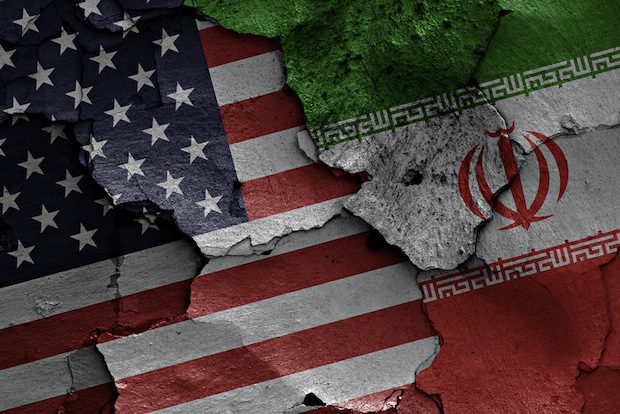Tillerson Doesn’t Understand Diplomacy

Dexter Filkins’ profile of Rex Tillerson contains some interesting anecdotes. This passage stood out for what it tells us about Tillerson and the incredible narrowness of conventional American views of the U.S.-Iranian relationship:
Tillerson wondered aloud whether the entire effort to improve relations with Iran wasn’t doomed by history. “We have more pounds, and our hair is gray,” he said. “Maybe we don’t have it in our capacity to change the nature of this relationship, because we are bound by it—maybe we leave it to the next generation to try.” He thought for a moment. “I don’t know. I’m not a diplomat.”
Everyone would agree by now that Tillerson is not a diplomat, but it is still striking that he isn’t particularly interested in trying to be one. If he were, he might see improving the relationship with Iran as a worthy challenge, or he would at least not be so determined to help Trump make the relationship even worse. The exchange between Tillerson and Zarif recounted in the profile does not reflect well on the former, who rattles off the usual list of complaints about Iranian behavior to distract from the fact that the nuclear deal is working as intended. The complaints are familiar, but also completely irrelevant as far as the nuclear deal is concerned. Constantly harping about these things makes it that much less likely that the U.S. and Iran will resolve any of their outstanding disputes through diplomacy, but then I suppose that’s the point. If anyone still thought that Tillerson might be interested in learning the art of diplomacy, this profile should put an end to that illusion once and for all.
The most disturbing part of this exchange is Tillerson’s resignation that “we are bound” by the history of the relationship to such an extent that we are trapped in a pattern of unending hostility. That isn’t just a boost for hard-liners in both countries, but betrays a startling ignorance of how often the U.S. has found a way to set aside old animosities with its adversaries. Compared to other adversaries, Iran is responsible for very few American deaths, and the U.S. and Iran have not fought a major war like the wars that our government fought against China or Vietnam. Despite all that, the relationship with Tehran remains far worse almost forty years later than those relationships were just ten or twenty years after the end of the respective conflicts. Twenty years after the fall of Saigon, the U.S. was normalizing relations with Hanoi, and sent our first ambassador there soon thereafter. The opening to China came less than twenty years after China joined the Korean War against the U.S. Almost forty years since the hostage crisis, the U.S. still has no formal relations with Iran, and there won’t be any for the foreseeable future.
It is not because the Iranian regime is so uniquely horrible that the U.S. couldn’t possibly have normal relations with it. More than a few of our client regimes are every bit as bad as Iran’s and some are indisputably worse, and some previous adversaries that we were at least willing to talk to were worse by many orders of magnitude. It is not because Iran poses such a great threat to the U.S. or our genuine allies that it is impossible for us to have normal ties. Indeed, all our treaty allies have relations with Iran. Hard-liners in both countries nurture the hostility between our governments because it suits their purposes that we have no diplomatic ties and virtually no trade, but this enduring antipathy isn’t in the interests of either country. As long as there are so few ties between the U.S. and Iran, it is very easy for hard-liners to spread misinformation, stoke tensions, and agitate for confrontation, and all that makes war more likely. A competent administration that didn’t have an obsession with opposing Iran at every turn would recognize that and try to build on the progress that was made during the nuclear negotiations, but as we know very well the Trump administration is just the opposite.
Comments